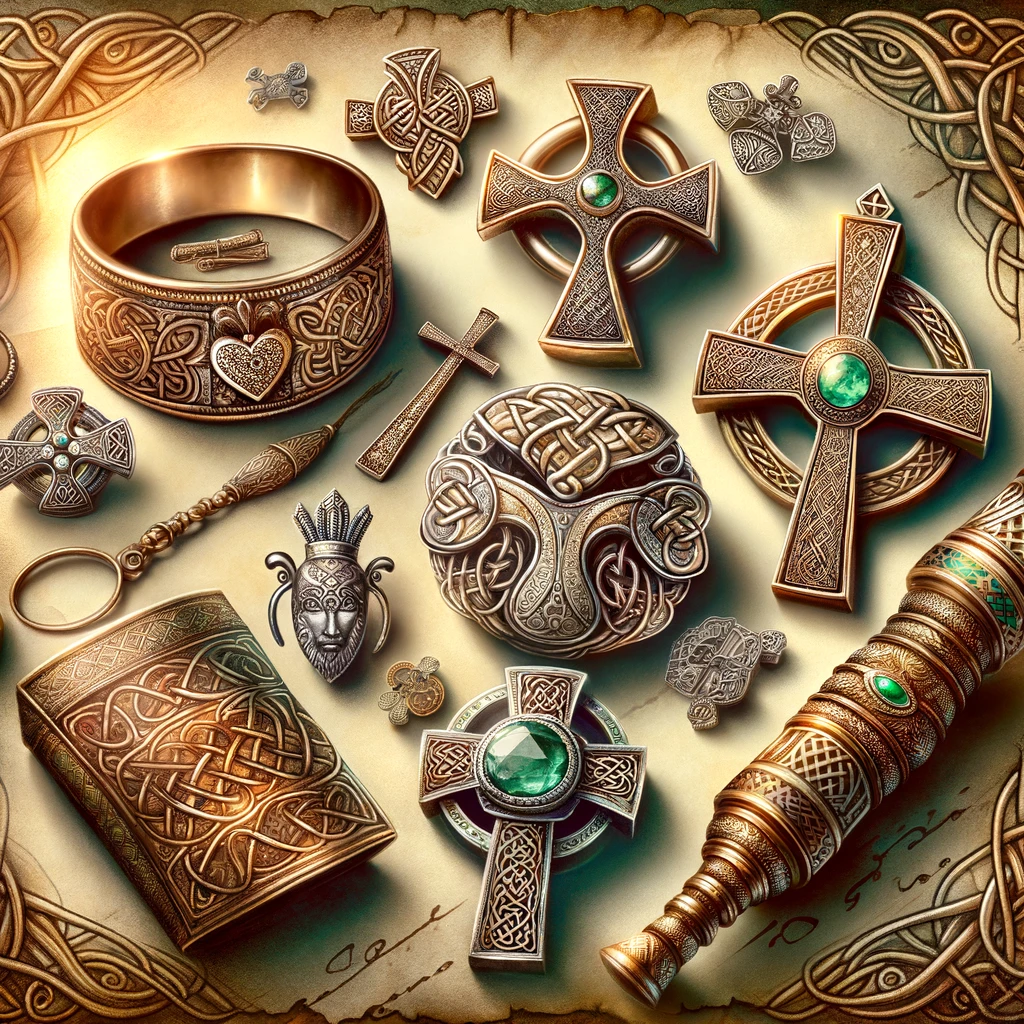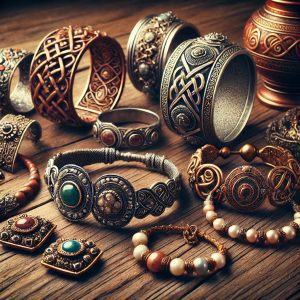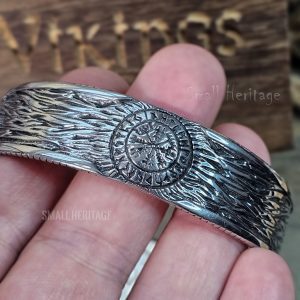Celtic jewelry, rich in history and cultural significance, dates back to ancient times when the Celts were a dominant and influential culture throughout Europe. These intricate pieces were not just adornments but also symbols of wealth, status, and personal identity. The use of complex knotwork and interwoven patterns in Celtic jewelry is believed to have spiritual significance, symbolizing the interconnectedness of all things in the universe.
Gold, silver, and other precious metals were commonly used by the Celts, often adorned with gemstones like diamonds, emeralds, and rubies. The Celts were skilled metalworkers, employing techniques such as filigree, granulation, and enameling to create their intricate designs. These craftsmanship techniques are evident in the torcs and brooches discovered in archaeological sites, which showcase the Celts’ advanced metalworking skills.
Celtic jewelry also saw influences from other cultures, such as the Vikings, particularly in areas like Scotland and Ireland. This fusion led to unique designs incorporating motifs like the gripping beast. Notable pieces from this era include brooches and other ornaments that exemplify this blend of artistic styles.

In modern times, Celtic jewelry continues to be popular, with designs like the Claddagh ring, which symbolizes love, friendship, and loyalty, and the Celtic cross, blending Celtic and Christian symbolism. These pieces retain their historical charm and continue to be cherished for their beauty and deep cultural roots.
Popular Celtic Jewelry Symbols:
- Triskelion: A three-spiral motif representing the tripartite nature of existence (land, sea, sky; life, death, rebirth).
- Celtic Knot: Often symbolizes eternity, with no beginning or end, representing the interconnectedness of life.
- Claddagh: A ring with two hands holding a heart, topped with a crown, symbolizing love, friendship, and loyalty.
- Celtic Cross: A cross with a circle surrounding the intersection, blending Christian and Celtic beliefs, often symbolizing faith and eternity.
- Awen: Three rays symbolizing the balance between male and female energies and divine inspiration.
- Tree of Life: Represents the connection between the heavens, earth, and the underworld, symbolizing growth, strength, and rebirth.
- Torcs: Neck rings representing status and power, often worn by warriors and chieftains.
The enduring appeal of Celtic jewelry lies in its ability to connect us with the past, offering a tangible link to the artistry and spiritual wisdom of the Celtic people. As contemporary jewelers draw inspiration from ancient patterns and symbols, Celtic jewelry remains a timeless expression of heritage and craftsmanship.
For a wide variety of historically inspired Celtic jewelry, including intricate designs and symbols like the Claddagh ring, Celtic crosses, and torcs, you can visit Small Heritage. The site offers a diverse collection of fine and fashion jewelry that celebrates Celtic heritage and craftsmanship.






One Response